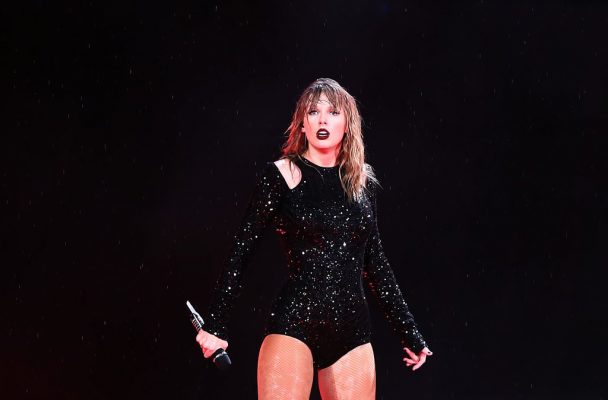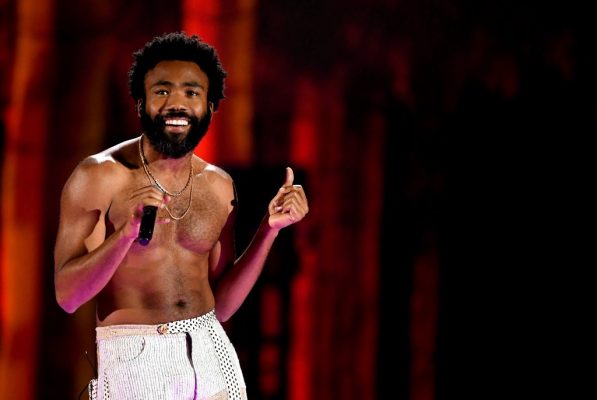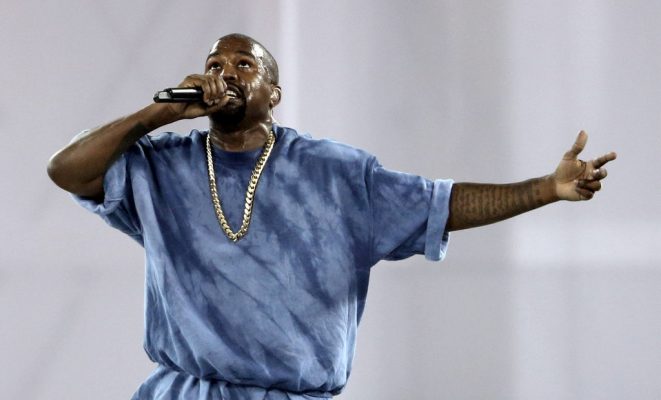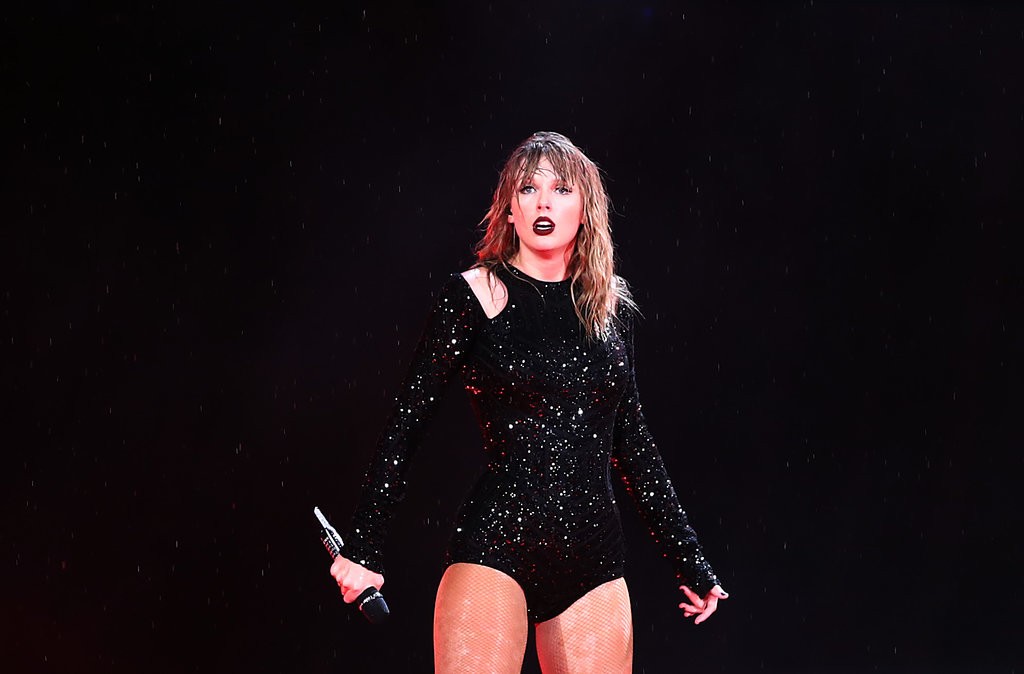News trend
Taylor Swift? Cardi B? The 2019 Grammy Nominations’ Snubs and Surprises
Taylor Swift? Cardi B? The 2019 Grammy Nominations’ Snubs and Surprises
Like most major awards shows, the Grammys in recent years has attempted a precarious balancing act: maintaining its status as the music establishment’s kingmaker — and live CBS concert event — while also trying to confront the reality of its staid, overwhelmingly white and male history.
[Kendrick Lamar leads nominees and women dominate major categories: see the full story.]
The leading nominees in 2019, like those from this year, come from hip-hop — namely Kendrick Lamar, Drake and Childish Gambino — but they are joined by a handful of women from multiple genres, many of them newcomers to this particular party. That doesn’t seem like an accident: After tensions came to a boil after the ceremony in January, the Recording Academy said it actively sought younger voters and empowered a task force focused on diversity and inclusion.
Here to discuss the new crop of nominees and what it might mean for the show in February is The New York Times pop music team: the chief pop critic Jon Pareles, the pop critic Jon Caramanica, the music editor Caryn Ganz and the pop reporter Joe Coscarelli.

PARELES Let’s start with a caveat: Having the most nominations does not guarantee wins. It’s more a measure of how many categories someone can qualify for — and in the era of “featuring,” that favors guest rappers and hook singers who can show up in multiple spots.
COSCARELLI It’s true — Drake’s seven nominations come in five categories, so he’s competing against himself (with “God’s Plan”) as a featured artist on Travis Scott’s “Sicko Mode” for two rap trophies.
PARELES This year, the Grammys made a major defensive move: They expanded the nominations in top categories from five to eight, so there’s wider representation among the nominees; the Oscars tried the same strategy. But the additional choices may end up splitting the vote in those main categories, where genres are pitted against one another.
Hip-hop fans will be divided among Kendrick Lamar, Drake, Childish Gambino and Cardi B for record of the year, while ballad and movie-theme lovers — more typical Grammy voters — can unite behind Lady Gaga and Bradley Cooper for “Shallow.” Diversity initiatives are a start, but will mere nominations appease anyone?
COSCARELLI And will Drake even show up? He’s been nominated more than 40 times in his career, but won only three times and has not made quote-unquote Grammy Moments a part of his legacy. He hasn’t even attended the last two years, and openly mocked the show for awarding “Hotline Bling” — a song with no rapping — the best rap song trophy.
Kendrick, on the other hand, has been a fixture on the Grammys stage, despite losing album of the year three times. Is this finally his year — for curating a soundtrack! — like those “we’re sorry” Oscars for Al Pacino and Martin Scorsese? How many times will rappers keep playing this game if they continue to lose in the big four categories despite keeping the music industry afloat with their streaming success?

CARAMANICA Here is the problem, as it may unfold: Those who helped finalize the nominations had an eye toward making the big categories as fair and open-eared as possible. That means acknowledging hip-hop’s primacy as a cultural force, and also its indisputable popularity. But when these nominations are subjected to the entire pool of Grammy voters, many of whom hail from different generations with different aesthetic values, they might skip right past Drake and Kendrick — among the most meaningful artists of this decade — in favor of something a little more relatable. So if Kacey Musgraves or Brandi Carlile walk away with the album of the year trophy, you’ll understand the primary reason. And if some of the most famous figures in hip-hop refuse to come and keep smiles on their faces while they are summarily marginalized, you’ll understand that, too.
COSCARELLI Let’s talk snubs. The obvious one is Taylor Swift, who despite being a Grammys darling, landed only one genre-category nomination for “Reputation” after the album’s lead single, “Look What You Made Me Do,” was similarly minimized last year. Did she get Ed Sheeran-ed — that is, left out of the major categories, like some figured Sheeran did last time, because the Grammys were too afraid that they’d have to answer for it if the voters just went ahead and picked her again over an artist of color?
CARAMANICA That’s totally plausible, but given Taylor Swift’s place as one of the most significant and also popular musicians of the past decade, it’s a little surprising to arrive at a point in which she has been underrated, and also unacknowledged. But here we are: “Reputation,” which came out last November, is an excellent pop album, but also Swift’s least successful. Her stylistic jolt to an aggressive pop sheen was perceived as too sudden, and the album, by her standards, is a dud — certified only three times platinum. And here in the Grammy conversation, she was effectively ignored; nominated for best pop vocal album, and nothing else.
GANZ I suspect the Grammys will regret the Taylor snub. She’s a reliable creator of awards-show content: reaction shots in the crowd, big performance numbers, memes. If she can encourage people to register to vote, she can lure people to watch an awards show with increasingly dwindling ratings.
COSCARELLI Pop vocal album is basically a Top 40 graveyard, seemingly where the Grammys put all the big pop acts that may have once made it to the album of the year pile: Ariana Grande (“Sweetener”), Camila Cabello (“Camila”), Shawn Mendes (self-titled), Pink (“Beautiful Trauma”) and Kelly Clarkson (“Meaning of Life”). Others who were openly gunning for an album of the year nomination, like Travis Scott, also ended up only in genre awards, while old-school Grammy shoo-ins like Paul McCartney and U2 were shut out entirely. (Kanye West, meanwhile, is only in the producer of the year category, despite being ubiquitous for a large portion of this exhausting year.) Is this an actual sea change moment in terms of who gets nominated where?
PARELES Actually, I think the producer nomination is the right slot for West. His own “Ye” was only seven songs long and didn’t feel like an album, while the producer nomination recognizes that whole batch of seven-song releases: ”Ye,” Pusha-T, Kids See Ghosts, Teyana Taylor. The nomination admits that as a producer, West still knows how to slice up and stack up samples to make songs move forward. Yet it doesn’t reward his own rapping or, by extension, his other public antics.
But the snubs in the rock categories, which have often been a soft place to land for longtime, brand-name guitar bands, suggest either that the Grammys are trying to slough off their elder-generation image or that there’s so little interest in the rock categories that blocs can stuff the ballot box. When Ghost and Greta Van Fleet can outpoll U2 in best rock album, or Fever 333 — who? — can grab a best rock song nomination, something is afoot.
GANZ The rock categories have been the scene of egregious weirdness for too many years to count now — remember Highly Suspect? But you’re right, Jon, and this is the first year in recent memory that the show doesn’t have a major legacy artist seemingly lined up to perform. (Should we start worrying about the Aretha Franklin tribute?)
COSCARELLI The biggest shock nominations, which will have a lot of people Googling today, are right there at the top: six nominations, including album, record and song, for the folk singer Brandi Carlile (who had just one prior nomination) and five for H.E.R., who put out a pretty modest R&B debut. Carlile had the producer Dave Cobb in her corner, and he’s Grammys bait, but where did these come from?
PARELES Well, it’s easy to see where Brandi Carlile came from. She’s more Americana or alt-country than folk, she’s got a gorgeous voice, she has built an extremely loyal following over multiple albums (including Barack Obama) and she writes songs (with her band members) that can pull people’s heartstrings. If the TV show treats her right in performance, she could gather a lot of new fans. For me, her latest album was slightly heavy-handed, but I’m not a Grammy voter. “The Joke,” her song that got nominated, is a consoling piano ballad about how people who have been scorned and left out will prevail as they persevere, and it’s got as big an emotional crescendo as an Adele song. She remade another song on her album, “Party of One” — a truly tortured longterm-relationship ballad — as a duet with Sam Smith. Those are the kinds of songs the Grammys have always favored.
CARAMANICA Can I just interrupt to iterate that it is completely within the realm of possibility that more people will vote for Carlile than for Drake, or Cardi B, or several other more famous artists. And now that I have taken a moment to listen to Carlile’s album, I can confirm that would be a mistake.

COSCARELLI As far as gender goes, things definitely look better than last year, when Lorde and Alessia Cara were pretty much all alone at the top and Bruno Mars swept the big awards. But more than how many women were nominated — and I do think we deserve an acceptance speech from Cardi B, who has five nods — I think the Grammys really ducked a disaster by not giving any posthumous nominations to XXXTentacion.
It had already been reported that he, along with Post Malone and Cardi B, would not be eligible for best new artist because of the music they’d released before the eligibility period — which leaves a pretty bizarre category — but his album “?”, which hit No. 1 and had the No. 1 single “Sad!,” could’ve ended up in other categories, raising the specter of his abuse allegations. Obviously the Grammys doesn’t need any more PR headaches, but are we surprised he was shut out, given the way the BET Awards and American Music Awards feted him anyway?
PARELES It does seem the Grammys were being risk-averse. The best new artist category very deliberately fudges the eligibility period, because so many acts now have a string of online or indie releases long before radio or Grammy voters know they exist. The mush-mouthed official language is “if their eligibility year release/s achieved a breakthrough into the public consciousness,” whatever that is. (Bon Iver won in 2012, four years after he released his million-selling debut album.) So the idea that XXXTentacion wasn’t eligible is dubious. But besides not wanting to condone XXXTentacion’s behavior, the Grammys may also have considered that he could not appear on the show.
COSCARELLI When we get into the smaller categories, that’s where things get really wacky, as usual.
CARAMANICA Another year, another inexplicable cleaving of R&B into essence-less subcategories that are then rendered even less meaningful by a seemingly random distribution of nominees within them. In best urban contemporary album, there is “Everything Is Love” by the Carters, Jay-Z and Beyonce’s first collaborative album, and strictly speaking, more hip-hop than R&B (which only matters because the category is limited to albums “containing at least 51% playing time of newly recorded contemporary vocal tracks derivative of R&B”).
PARELES The Grammys are really flummoxed by Latin music. Best Latin rock, urban or alternative album is a desperate catchall category that still manages to completely ignore a Latin and global phenomenon that became inescapable in 2017 with “Despacito”: reggaeton-flavored songs that dance past the language barrier. Even if they can somehow resist the groove, the Grammys should have been paying attention to the tens of millions of streams for the many offspring of “Despacito” — and to eligible 2018 albums by Ozuna and J Balvin. The Grammys did notice Balvin (and Bad Bunny) by nominating them with Cardi B on “I Like It,” but that’s no compensation.
CARAMANICA I can’t help but think, if boycotts are in order, this easily avoidable situation would make for a more than valid one.
PARELES Joe, I want to see that Cardi B acceptance speech as much as you do, but I fully expect song and record of the year to belong to “Shallow.” It’s not only a ballad and a song from a movie soundtrack — the Grammys like those — but it’s also a song from a movie about the music business itself, with big-screen images and sympathetic characters for Grammy voters to remember. Lady Gaga is a familiar name and a familiar (and boffo) Grammy show performer. To me that win seems inevitable, which could raise one more question: How could best new artist possibly omit Bradley Cooper?

